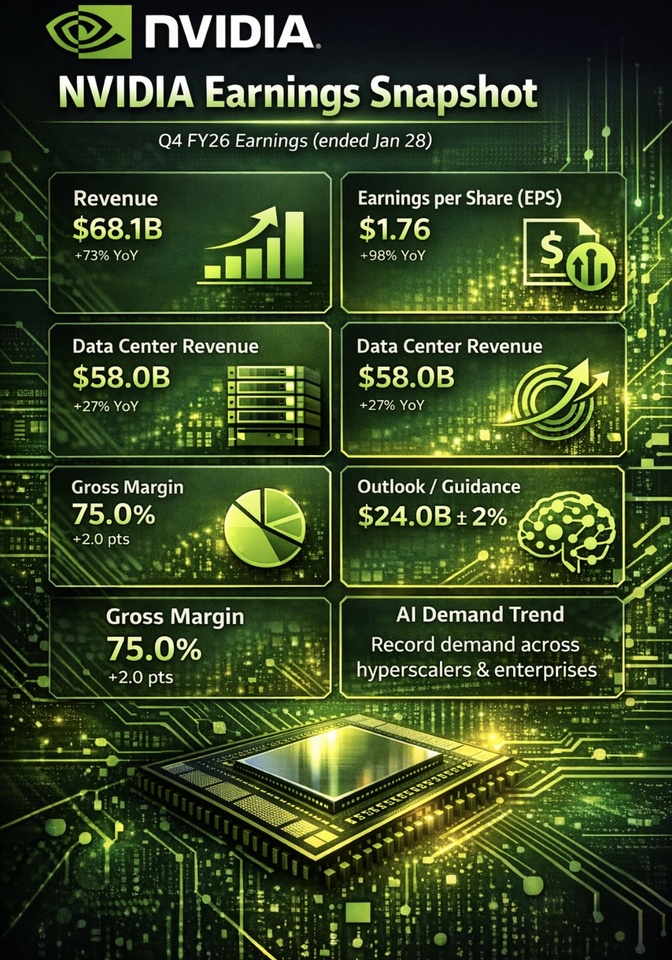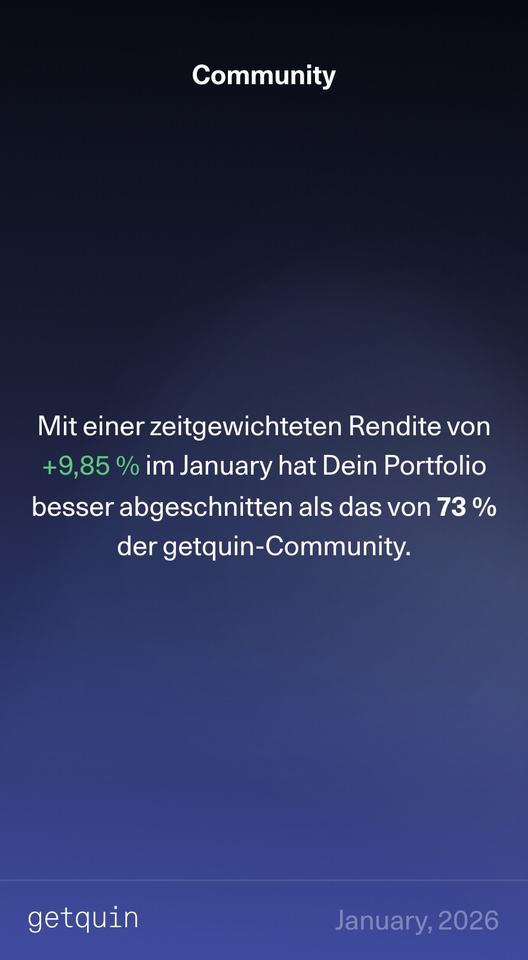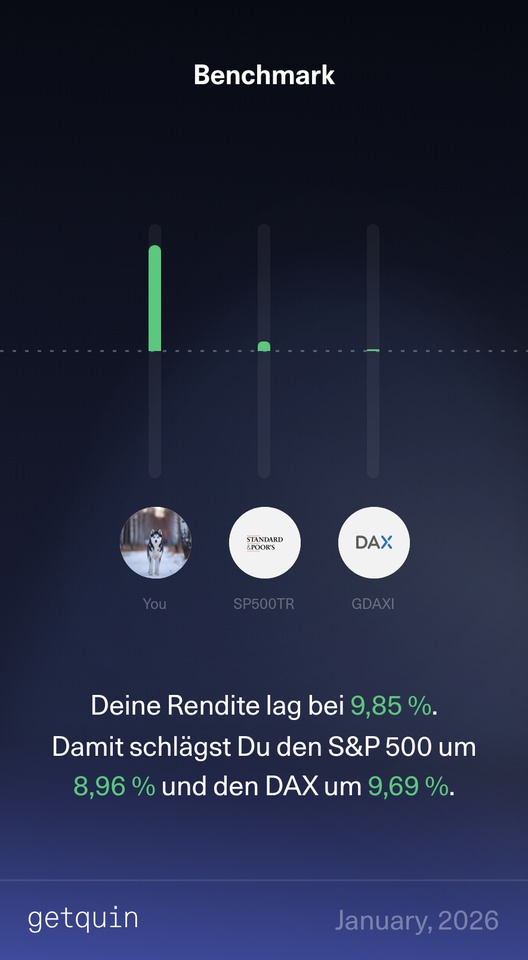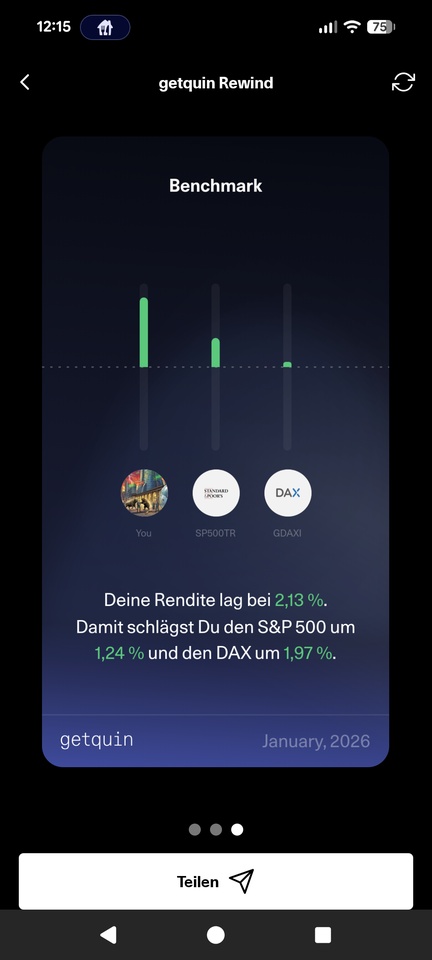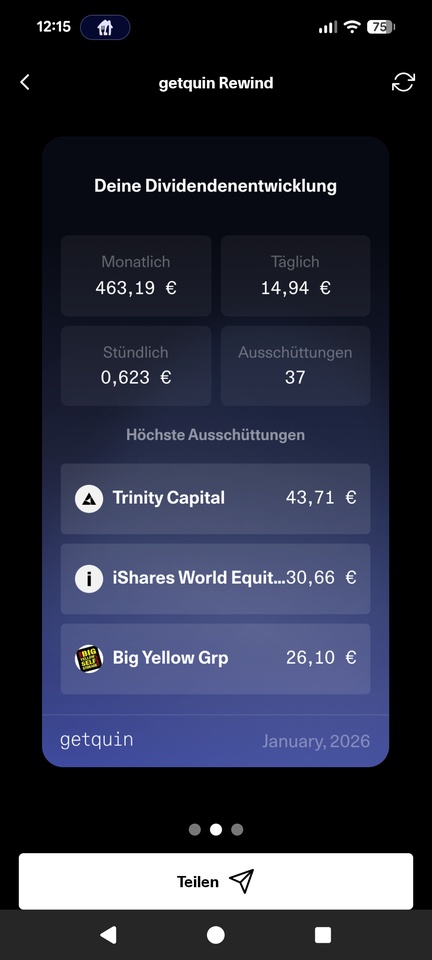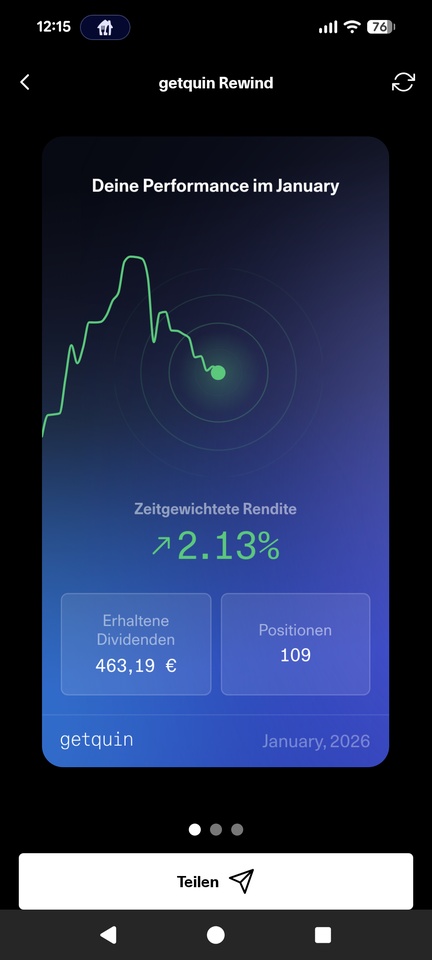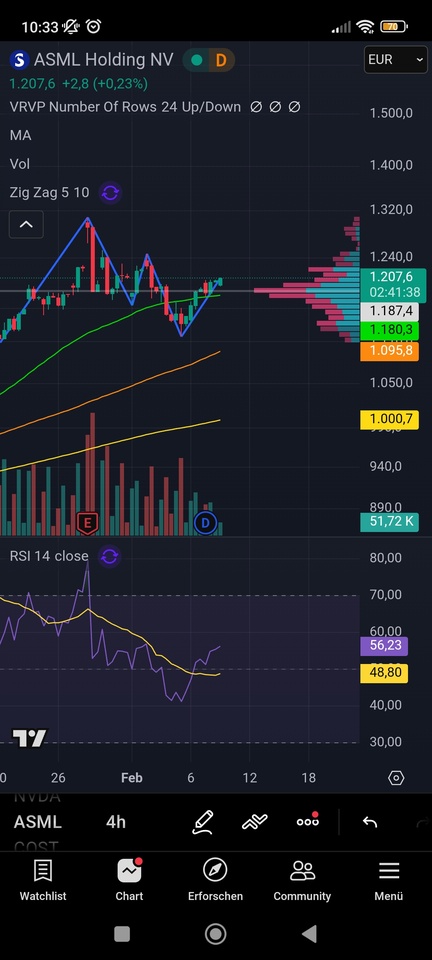NVIDIA today presented its figures for the fourth quarter of the 2026 financial year (as at the end of January). As expected, everything was dominated by the unbroken demand for AI infrastructure - and once again it is clear that the market does not measure NVIDIA by "good", but by "incredible".
What we know and how I classify the figures:
1) Expectations were extremely high
Analysts had expected EPS of around USD 1.52 in advance - which corresponds to growth of over 70% compared to the previous year. So the benchmark is brutal: NVIDIA must not only grow, but constantly move the bar. (Source: Analyst estimates prior to publication)
2) Starting position: record series continues
In the last reported quarter, sales were already around USD 57 billion, driven primarily by the data center segment with sales of over USD 50 billion. Demand for AI GPUs was so strong that some chips were sold out - especially the Blackwell generation.
The trend is clear: cloud hyperscalers, enterprise AI and national AI programs continue to soak up capacity.
3) The real driver remains the data center
NVIDIA is no longer a "GPU gaming company". The data center business is the core - and acts as the infrastructure layer for the entire AI economy.
As long as Microsoft, Amazon, Google, Meta and Co. continue to aggressively increase their CapEx budgets, NVIDIA will remain the biggest beneficiary.
4) The market pays less attention to the past than to guidance
As always, the reaction will depend less on the reported numbers than on the outlook. The key question is:
- Will growth remain > 50%?
- Will the gross margin remain in the mid-70% range?
- Are there indications of demand normalization?
Historically, NVIDIA has beaten expectations in 20 of the last 22 quarters - which explains why the market is almost pricing in perfection.
5) Valuation remains the key risk
With a high multiple and enormous expectations, NVIDIA is not a value case. It is a momentum and structural growth theme.
The real risk would not be weak growth, but a narrative shift:
If investors start to believe that the AI CapEx peak has been reached, the valuation could compress quickly.
6) The bigger picture: AI as an infrastructure boom
We are probably still in phase 1 of the AI cycle - the infrastructure buildout.
Historically (internet, cloud), it is the pick-and-shovel vendors that earn the most in this phase. NVIDIA is currently exactly that: the shovel vendor in the gold rush.
My conclusion:
NVIDIA remains the single most important stock in the entire tech ecosystem. The numbers once again confirm that AI investments are not just hype, but a global investment cycle.
In the short term, the guidance will determine the share price reaction. In the long term, the crucial question remains: how long can this demand supercycle last?
What do you think - will we see several more years of hyper-growth or are we slowly approaching the CapEx peak?
$NVDA (-4,47 %)
$AMD (-2,01 %)
$MSFT (-0,51 %)
$ASML (-1,61 %)
$TSM (-0,94 %)



